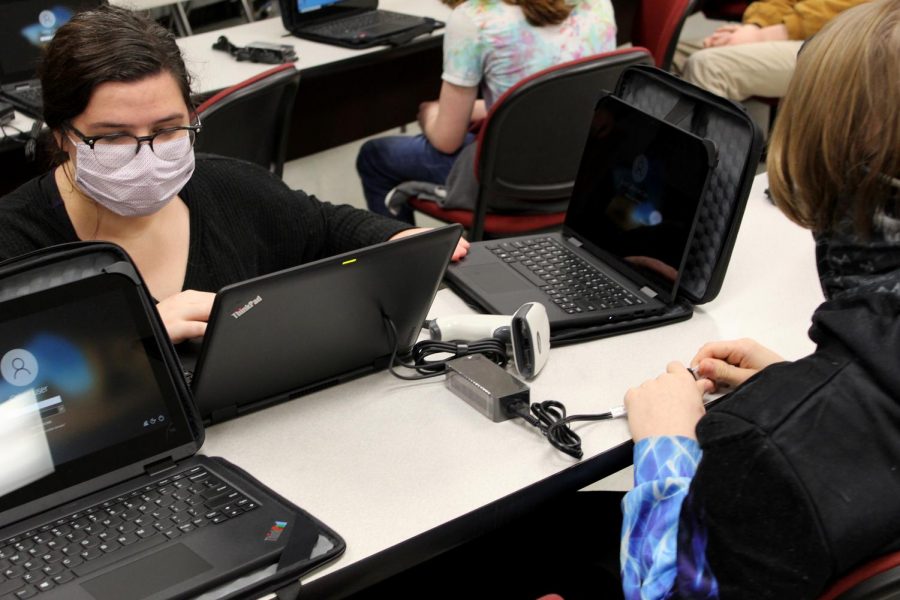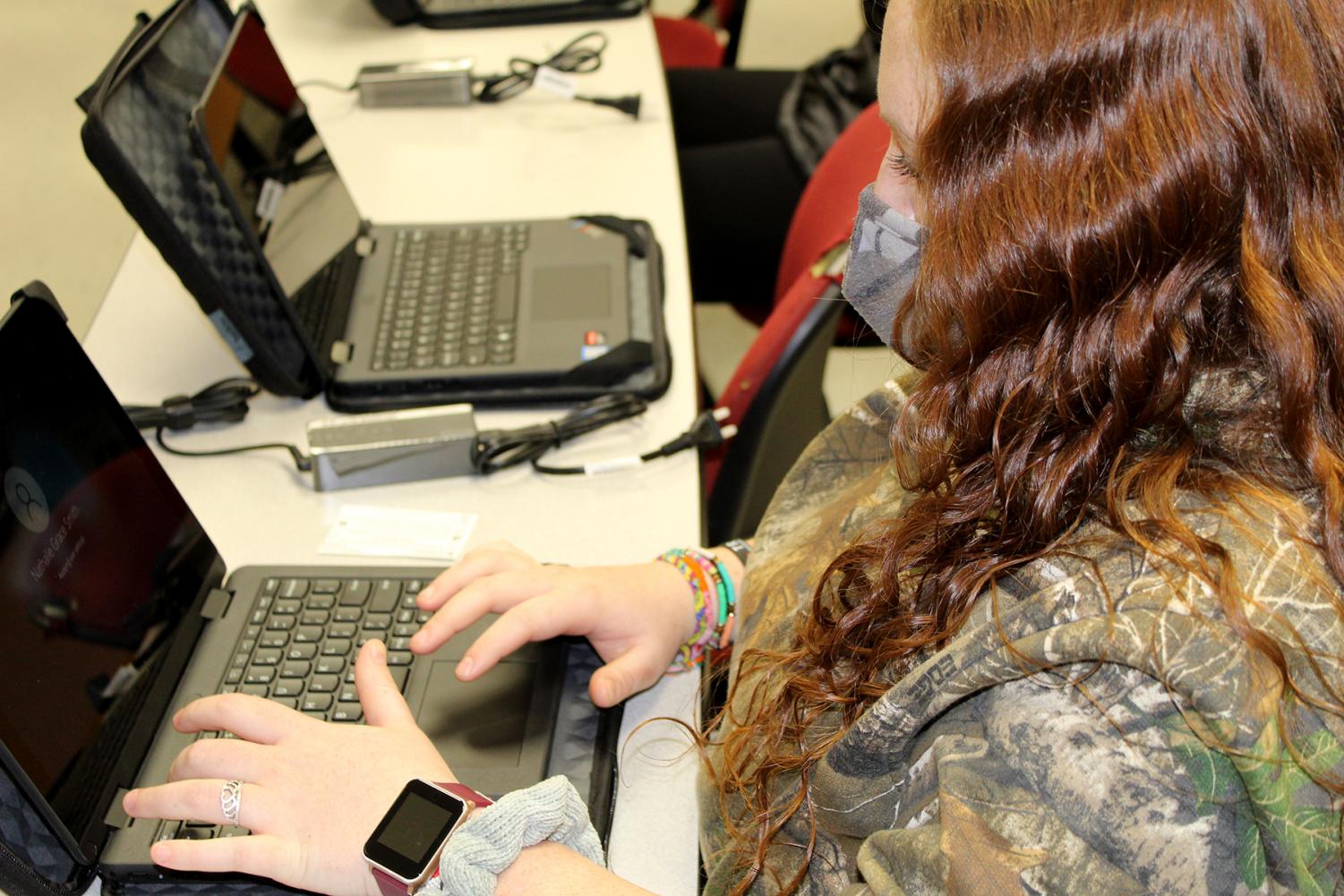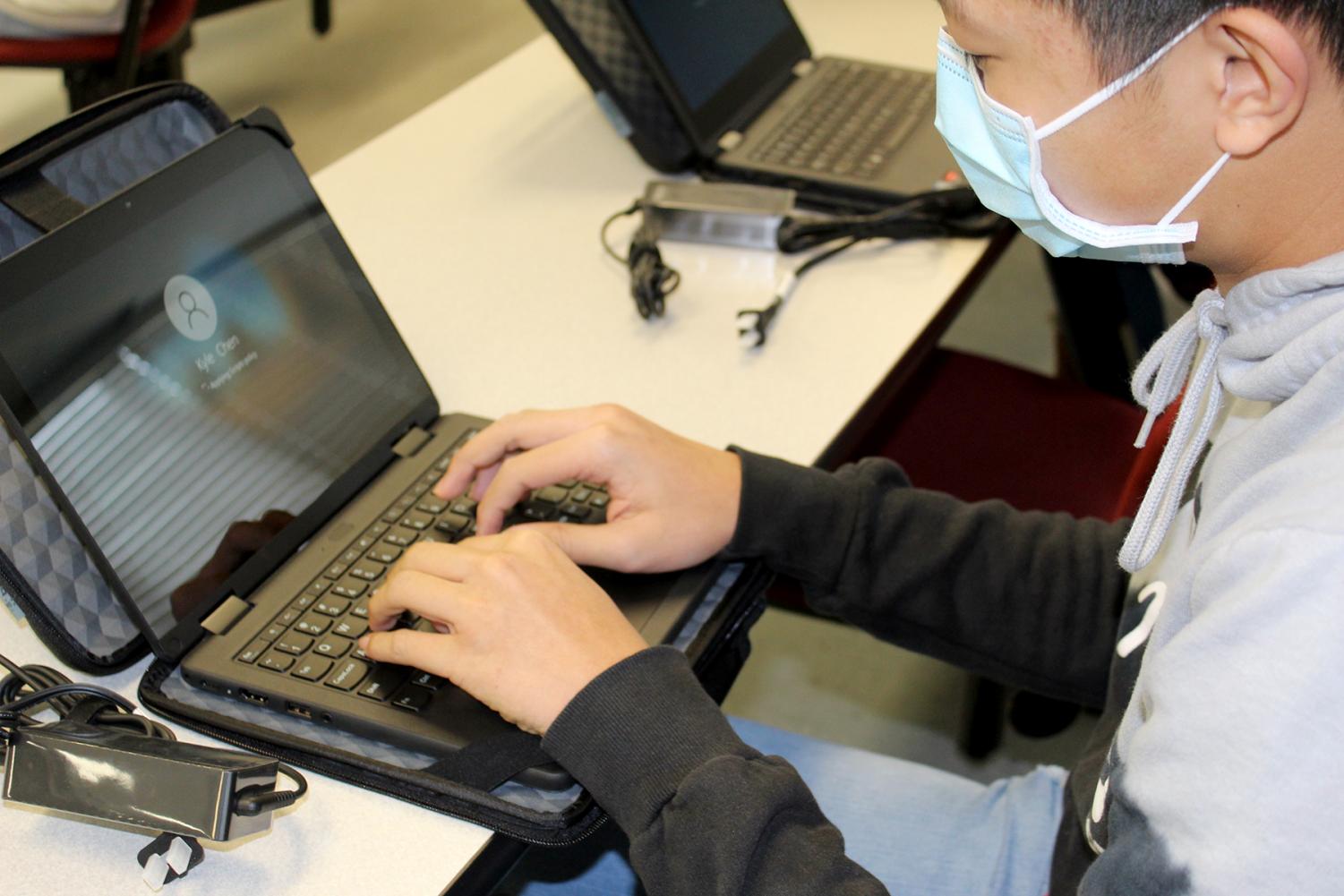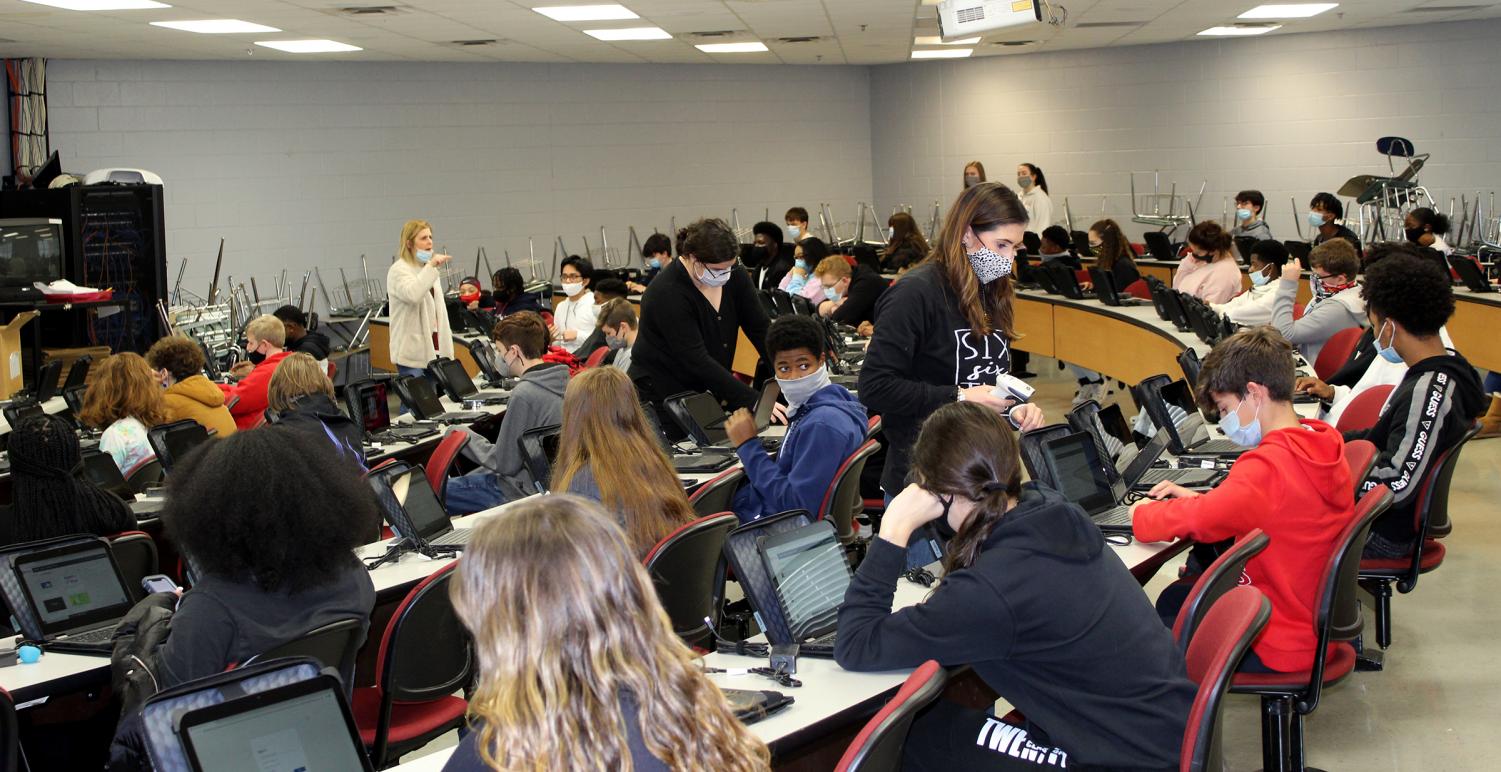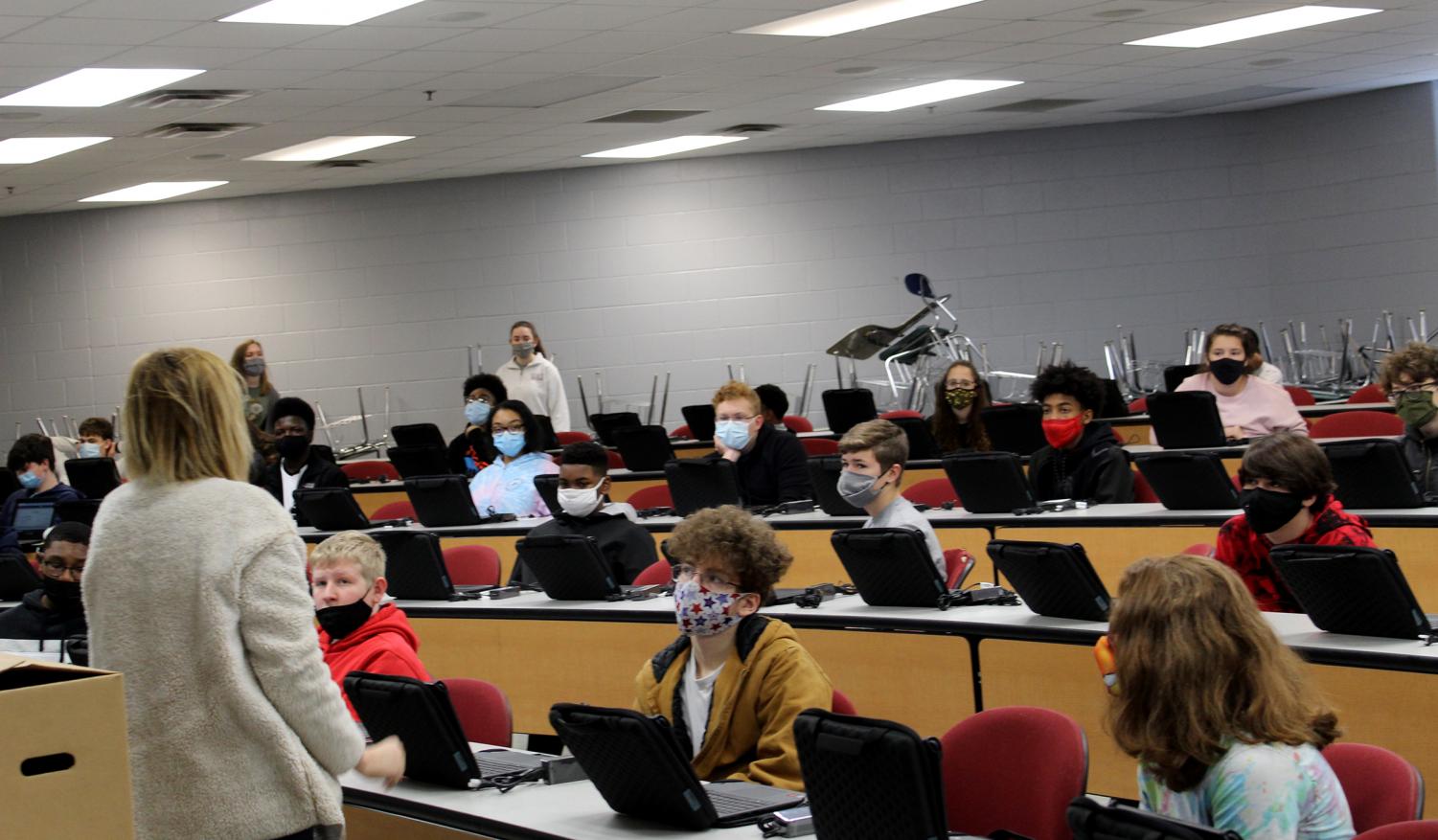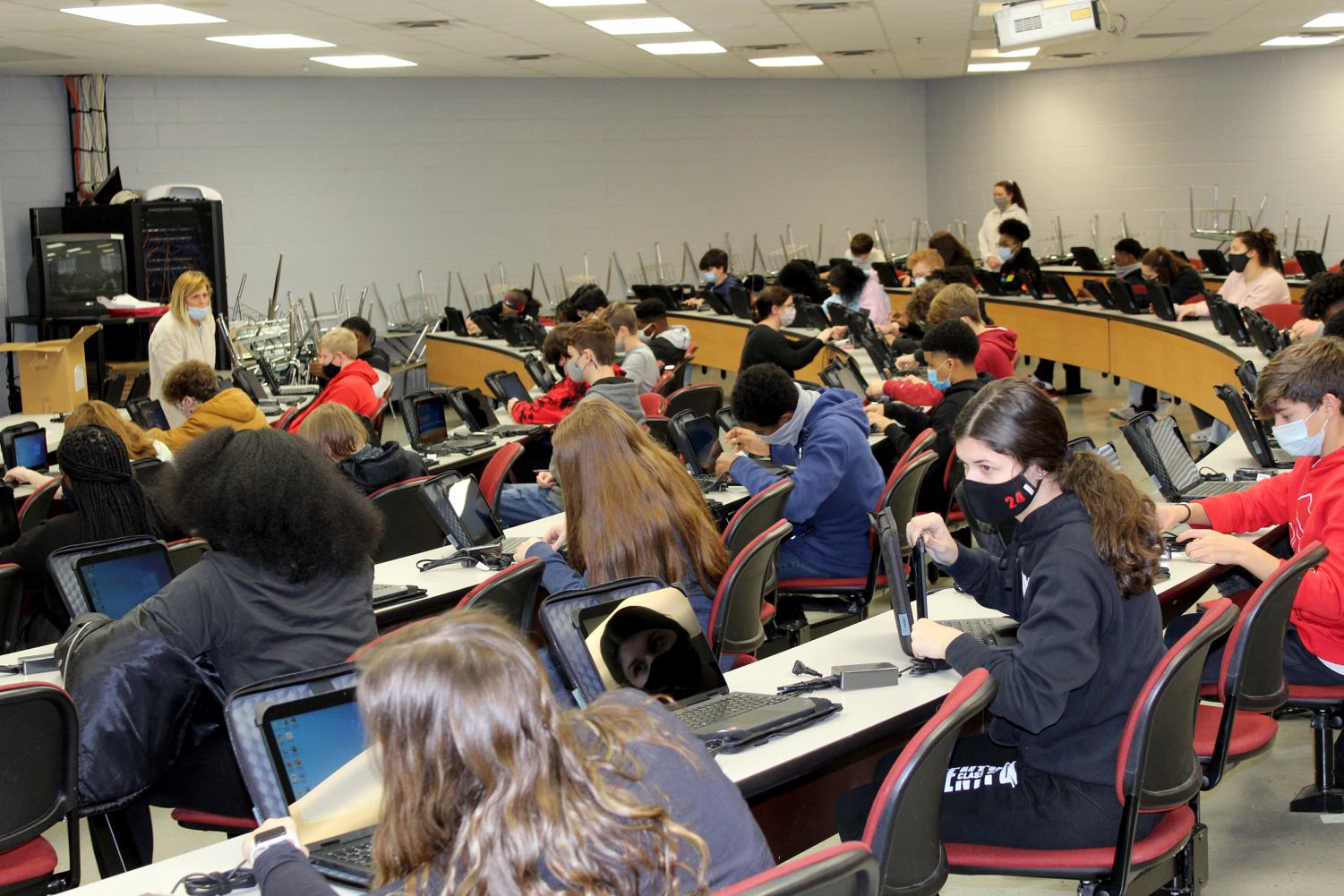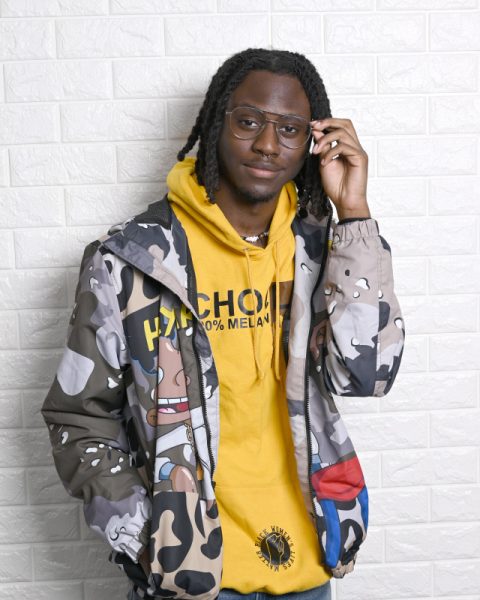With its share of $200 million allocated by the state for technology, DeSoto County Schools has started distributing more than 25,000 laptops to students in the new 1:1 device program.
“Right now the school was given close to 1,000 devices,” CHHS Assistant Principal Zack Sims said. “We hope that by the fall that all of them are given out to everyone, because that’s basically one for everyone, every student. One to one initiative is the goal.”
The rollout officially began Jan. 25, Sims said, although select classes tested the process ahead of time. Jacob Money, a junior, was part of the Digital Learning Initiative’s soft release and said his new laptop will make navigating Schoology easier.
“I think an advantage is you can use Word documents a little better, you can type quicker than texting and the interface for Schoology is better than on a phone,” Money said.
Sims also noted several benefits of the laptops, which come with hard cases and chargers.
“The school-issued laptops are already in sync with our WiFi, our interface, our internet, our safeguards, everything such as our firewalls, things of that nature,” Sims said. “It already has all the technology, programs, software that it needs to have.”
A feature he thinks students will like about the Lenovo ThinkPads is that they are high-tech.
“They’re touchscreen, they’re brand new, they’re pretty fancy, and they basically make it the easiest way to be infused in school, where if you had a personal laptop you might have to add software,” he said, or a personal device might have security issues.
That’s why, starting next fall, Sims said students will not be able to use their own devices.
“Since (the School Board) changed the rules and the policy for next semester, you can’t even bring those on campus because it leads to an issue where it can upload viruses, it could contaminate other technology, and mess with the safety of everyone,” he said. “So it is in the best interest for every student to, if they want to have a device here at school, to get one of the new school laptops.”
If students forget their school-issued laptop or it isn’t charged, that will be a matter of personal responsibility, he said, and teachers will offer grace periods. However, “If it becomes a pattern or an issue or something like that, then it can lead to consequences, or the possibility of them not being able to complete an assignment or engage in class if they don’t have their responsibility taken care of.”
Sims said students may still be allowed to use their phones in the classroom, but that won’t be the case for long.
“They’ll be allowed to use their phones in kind of a limited capacity,” he said. “You’ll be allowed to have phones on campus as we always have, but they will not be the main use for education purposes.”
From a teacher’s perspective, Angel Pilcher said that phones are not the best devices to use in the classroom.
“Phones are causing problems because they’re a distraction, and students may be doing things on their phone that they’re not supposed to be doing,” Pilcher said.
Grace Smith, a sophomore, agreed that phones are a problem for some students “because they use them for the wrong reasons like social media.”
On the other hand, Smith said students with personal laptops should be able to use them since they bought them, and she thinks teachers should accommodate students who need to charge their devices.
“I feel like if it’s not charged then the teacher should let them in class so they can get their school work done since we’re not going to be allowed to use our phones anymore,” she said.
Freshman Catherine Bolhuis said students should be allowed to use their personal laptops and to charge them in the classroom if an outlet is available.
Like Money, Bolhuis said that the school-issued laptops offer “a better platform to do school work on.”
But Money did point out one slight disadvantage: “I don’t have enough room in my backpack for it.”

